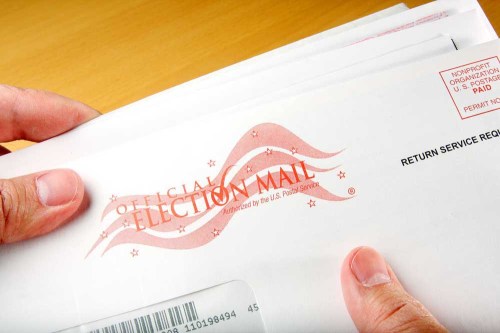Our view | America should imitate Oregon on voting by mail
Published 5:00 am Tuesday, March 31, 2020

- U.S. Sen. Ron Wyden, D-Ore., is a vocal champion of Oregon’s vote-by-mail system, which he would like to see expanded to the entire country.
Norma Paulus would be proud. And she would be amazed. As secretary of state from 1977 until 1985, Paulus was the prime mover of Oregon’s voting by mail. Other states have been slow to follow Oregon’s lead. But — in the way that sudden events provoke unexpected change — the coronavirus makes voting by mail a timely solution.
Oregon’s U.S. Sen. Ron Wyden and U.S. Sen. Amy Klobuchar, of Minnesota, have authored legislation to make the mail ballot more prevalent.
Trending
For Wyden, this has been a long slog. He first introduced this legislation in 2002. “I’ve never had the interest that we have now,” he said during a March 23 interview. “During the most recent slate of presidential primary elections, three states opted to postpone voting because of the coronavirus.”
In this climate, Wyden argues that the pandemic offers a stark choice. “Either people are not going to be able to vote or they vote by mail. If those are the two choices for America this fall, that is not a close call.”
Like the bottle bill, public beaches and statewide land use planning, voting by mail is one of Oregon’s emblematic, pioneering achievements. Initially, it was a Republican proposal, opposed by labor unions that influenced the Democratic Party. Then it became a Democratic Party cause, led by Secretary of State Phil Keisling, who served in the 1990s.
Under Paulus, counties were allowed to use the mail ballot for nonprimary or nongeneral elections. When counties took advantage of the new mode of voting, turnout increased by factors of three and five, Keisling said.
In 1995, the Oregon Legislature enacted Keisling’s bill to allow voting by mail, but Gov. John Kitzhaber vetoed the legislation.
Months later, a surprise allowed Keisling to make history. When Bob Packwood resigned from the U.S. Senate in 1995, county clerks across Oregon urged Keisling to conduct the sudden, special Senate election by mail ballot. He could do that, because existing statute prohibited mail ballots only in the primary and general elections.
Trending
The special primary in 1995 and the general election in early 1996 became the first federal elections in America to be conducted by mail. Turnout was high — 58% in the special primary and 66% in the general. Wyden became Oregon’s new U.S. senator.
In 1998, Oregon voters by a margin of 2-to-1 approved a ballot measure mandating voting by mail in all Oregon elections.
Keisling has continued his advocacy within the National Vote At Home Institute, of which he is founder and a board member. His 2016 article in the Washington Monthly (“Vote From Home, Save Your Country”) is an extensive history of the national discussion of mail balloting.
In the most recent development, Wyden’s biggest opponent is the voting machine lobby. Of digital voting, the Oregon Democrat says: “A voting machine with remote access software is the equivalent of putting an American ballot box in the Kremlin.” He disparages the voting machine lobby, saying: “They lied to me, to The New York Times. They stonewalled Congress.”
Wyden measures his progress by how many Republican senators who now say they are thinking about his proposal.
The emergency package in Congress in response to the coronavirus includes $400 million to help states with elections, but Wyden and Klobuchar believe more help is needed.
“In times of crisis, the American people cannot be forced to choose between their health and exercising their right to vote,” the senators said in a statement. “While this funding is a step in the right direction, we must enact election reforms across the country as well as secure more resources to guarantee safe and secure elections. We will continue to fight to pass the Natural Disaster and Emergency Ballot Act of 2020 to ensure every eligible American can safely and lawfully cast their ballot.”
This newspaper’s editorial page has argued in favor of the mail ballot from the year that Secretary Paulus launched the idea. An adverse moment in history reinforces the case that voting by mail makes abundant sense.
It’s time for America to imitate Oregon.









